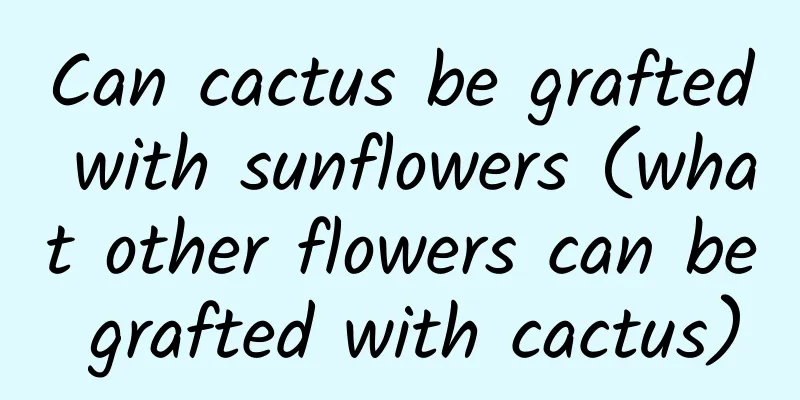What is the reason why the leaves of Osmanthus fragrans turn yellow and fall off?

|
Osmanthus fragrans is an evergreen shrub of the genus Osmanthus in the Rutaceae family. It has an elegant tree posture, vigorous branches, and is evergreen all the year round. Its flowers are white and fragrant, and its red fruits are dazzling. It is an excellent bonsai material. However, many people often encounter the situation where the leaves of Osmanthus fragrans turn yellow and fall off when caring for it. What is the reason for this? Let’s learn more about it below. 1. Normal metabolism If there are only a few yellow leaves, and they are old leaves, and there will not be a large number of yellow leaves further, and the young leaves and the plant are growing vigorously and are very energetic, then this should be part of normal metabolism. You don't need to worry about it, and just need to maintain it normally. 2. Insufficient light Osmanthus fragrans likes an environment with sufficient light. If the plant lacks light for a long time, the leaves will easily wilt and fall off. When cultivating, the plant needs to be placed in a sunny place, and the lighting time should not be less than 5 hours. 3. Temperature discomfort Osmanthus fragrans likes a warm and humid environment. Low temperatures in winter or high temperatures in summer will affect its growth, causing yellowing and falling leaves. The solution is to keep the room temperature at no less than 5°C in winter and provide shade and cooling measures in summer. 4. Improper watering Osmanthus fragrans has special requirements for water, it cannot be too wet or too dry. Overwatering can cause a lack of oxygen to the roots, causing the leaves to turn yellow, while insufficient water can cause the leaves to lose water, also causing them to turn yellow. The frequency and amount of watering should be reasonably regulated, and can be adjusted according to the season and weather conditions. 5. Improper fertilization Improper fertilization can also cause the leaves of Osmanthus fragrans to fall off and turn yellow. If the soil is alkaline and forms a crust, lack of nutrients can also cause yellow leaves. In addition, excessive and concentrated fertilizer application can also cause fertilizer damage. Some leaves will have yellow and black spots, yellow leaves, and then fall off. The solution is to stop fertilizing and increase the amount of watering appropriately to avoid fertilizer damage. Also note that fertilization should be applied in spring and autumn, following the principle of "applying small amounts of fertilizer frequently". The best fertilizers to use are alum fertilizer water and potassium dihydrogen phosphate, which have the best effect. 6. Pests and diseases Pests and diseases such as aphids and spider mites will suck plant sap and cause the leaves to turn yellow. The solution is to detect it in time and take appropriate prevention and control measures, such as using pesticides or biological control methods. In general, if you want to solve the problem of yellowing and falling leaves of Osmanthus fragrans, you must first find the root cause and then take corresponding countermeasures. And during daily maintenance, we should also strengthen the observation and management of Osmanthus fragrans to promptly discover and deal with potential problems.
|
<<: Tips for watering elm bonsai
>>: Rose cultivation methods and precautions
Recommend
Tips for caring for red sage in four seasons
spring The seeds are usually sown in April , and ...
How to prune hanging bamboo
When to prune the hanging bamboo Hanging bamboo c...
How to prune the roots of the Master Succulent
The roots of the Master Succulent need to be trim...
When is the best time to plant Magnolia?
Magnolia grandiflora, also known as magnolia vege...
What vegetables are suitable to grow in winter?
What vegetables are suitable to grow in winter? T...
How to divide the Chinese lucky charm
Time for division of Hongyun Dangtou The lucky pi...
How to wash bayberry
1. Cleaning method 1. Clean with salt water: If y...
Why can't peach trees be planted at home? Where can peach trees be planted at home?
You can plant peach trees at home. Because they h...
Can I plant radishes in December? (Winter radish planting time and method)
Can I grow radishes in winter? Radish is grown al...
How many seeds should be planted in one pot?
1. Planting volume When planting cosmos, you can ...
What kind of soil is best for growing Christmas cactus (what kind of flowerpot soil is needed to grow Christmas cactus)
The soil has a great influence on whether the Chr...
Succulent leaf cutting video: Use plastic bottles to quickly root
Succulent leaf cutting rooting video Method of ro...
Lisianthus planting methods and time, sowing time and technology
Suitable planting time for lisianthus Lisianthus ...
How to propagate Phalaenopsis seedlings
1. Flower stalk germination propagation method ① ...
How to remedy the yellowing of the leaves of the iron tree
1. Control the amount of water Reason: The yellow...









